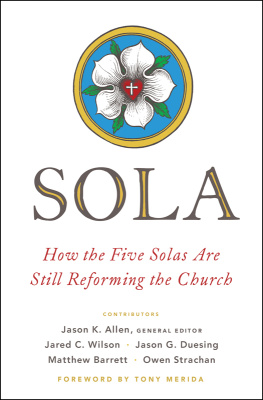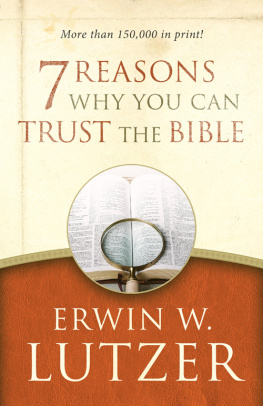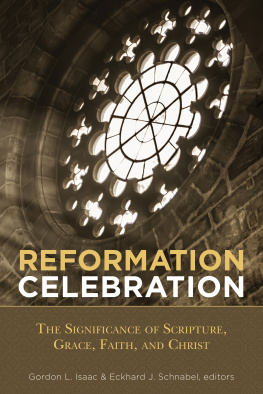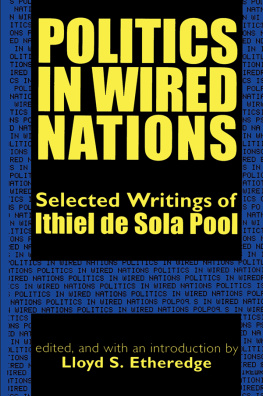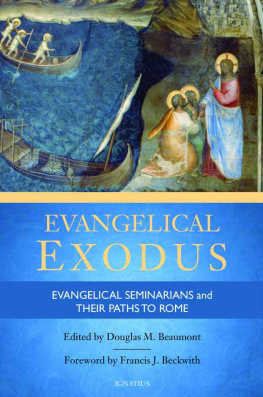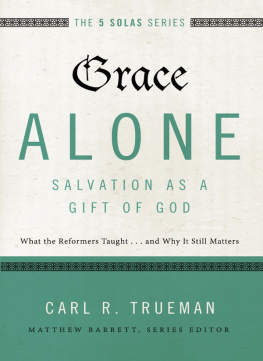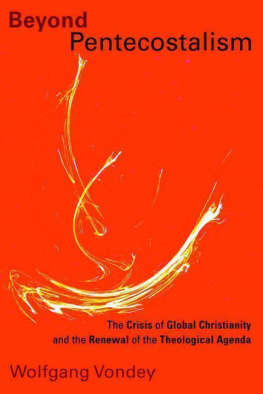Joel Peters - Scripture Alone?: 21 Reasons to Reject Sola Scriptura
Here you can read online Joel Peters - Scripture Alone?: 21 Reasons to Reject Sola Scriptura full text of the book (entire story) in english for free. Download pdf and epub, get meaning, cover and reviews about this ebook. year: 2015, publisher: TAN Books, genre: Religion. Description of the work, (preface) as well as reviews are available. Best literature library LitArk.com created for fans of good reading and offers a wide selection of genres:
Romance novel
Science fiction
Adventure
Detective
Science
History
Home and family
Prose
Art
Politics
Computer
Non-fiction
Religion
Business
Children
Humor
Choose a favorite category and find really read worthwhile books. Enjoy immersion in the world of imagination, feel the emotions of the characters or learn something new for yourself, make an fascinating discovery.

- Book:Scripture Alone?: 21 Reasons to Reject Sola Scriptura
- Author:
- Publisher:TAN Books
- Genre:
- Year:2015
- Rating:3 / 5
- Favourites:Add to favourites
- Your mark:
- 60
- 1
- 2
- 3
- 4
- 5
Scripture Alone?: 21 Reasons to Reject Sola Scriptura: summary, description and annotation
We offer to read an annotation, description, summary or preface (depends on what the author of the book "Scripture Alone?: 21 Reasons to Reject Sola Scriptura" wrote himself). If you haven't found the necessary information about the book — write in the comments, we will try to find it.
Joel Peters: author's other books
Who wrote Scripture Alone?: 21 Reasons to Reject Sola Scriptura? Find out the surname, the name of the author of the book and a list of all author's works by series.
Scripture Alone?: 21 Reasons to Reject Sola Scriptura — read online for free the complete book (whole text) full work
Below is the text of the book, divided by pages. System saving the place of the last page read, allows you to conveniently read the book "Scripture Alone?: 21 Reasons to Reject Sola Scriptura" online for free, without having to search again every time where you left off. Put a bookmark, and you can go to the page where you finished reading at any time.
Font size:
Interval:
Bookmark:
Scripture Alone?
21 Reasons to
Reject Sola
Scriptura
Joel S. Peters
Nihil Obstat:
David D. Kagan, J.C.L.
Vicar General
Imprimatur:
Thomas G. Doran, D.D., J.C.D.
Bishop of Rockford
Rockford, Illinois
August 6, 2001
The Nihil Obstat and Imprimatur are official declarations that a book or pamphlet is free of doctrinal or moral error. No implication is contained therein that those who have granted the Nihil Obstat and Imprimatur agree with the contents, opinions or statements expressed.
Copyright 1999 by Joel S. Peters.
Library of Congress Catalog Card No.: 98-61405
TAN Books
Charlotte, North Carolina
www.TANBooks.com
1999
I would not believe the Gospel itself, if the authority of the Catholic Church did not move me to do so.
St. Augustine (354-430)
(Contra Epist. Fundam. i, 6)
About the Author
Joel Peters currently teaches theology at St. Joseph Regional High School in Montvale, New Jersey. He obtained his B.A. in Psychology/Sociology from Rutgers University and his M.A. in Pastoral Ministry from Immaculate Conception Seminary at Seton Hall University. Over the years, Mr. Peters has been involved in many forms of parish ministry and youth ministry. His personal interests include apologetics, the study of cults, and the Shroud of Turin. Joel Peters articles have appeared in This Rock magazine. He is married and is the father of three children.
CONTENTS
SCRIPTURE ALONE?
What Is Sola Scriptura?
We believe in the Bible alone and the Bible in its entirety as the sole rule of faith for the Christian!
You may have heard these words or something very similar to them from a Fundamentalist or Evangelical Protestant. They are, in essence, the meaning of the doctrine of Sola Scriptura, or Scripture alone, which alleges that the Bibleas interpreted by the individual believeris the only source of religious authority and is the Christians sole rule of faith or criterion regarding what is to be believed. By this doctrine, which is one of the foundational beliefs of Protestantism, a Protestant denies that there is any other source of religious authority or divine Revelation to humanity.
The Catholic, on the other hand, holds that the immediate or direct rule of faith is the teaching of the Church; the Church in turn takes her teaching from divine Revelationboth the written Word, called Sacred Scripture, and the oral or unwritten Word, known as Tradition. The teaching authority or Magisterium of the Catholic Church (headed by the Pope), although not itself a source of divine Revelation, nevertheless has a God-given mission to interpret and teach both Scripture and Tradition. Scripture and Tradition are the sources of Christian doctrine, the Christians remote or indirect rule of faith.
Obviously these two views on what constitutes the Christians rule of faith are opposed to each other, and anyone who sincerely seeks to follow Christ must be sure that he follows the one that is true.
The doctrine of Sola Scriptura originated with Martin Luther, the 16th-century German monk who broke away from the Roman Catholic Church and started the Protestant Reformation. In response to some abuses that had been occurring within the Catholic Church, Luther became a vocal opponent of certain practices. As far as these abuses were concerned, they were real and Luther was justified in reacting. However, as a series of confrontations between him and the Catholic hierarchy developed, the issues became more centered on the question of Church authority andfrom Luthers perspectivewhether or not the teaching of the Catholic Church was a legitimate rule of faith for Christians.
As the confrontations between Luther and the Churchs hierarchy ensued and tensions mounted, Luther accused the Catholic Church of having corrupted Christian doctrine and having distorted Biblical truths, and he more and more came to believe that the Bible, as interpreted by the individual believer, was the only true religious authority for a Christian. He eventually rejected Tradition as well as the teaching authority of the Catholic Church (with the Pope at its head) as having legitimate religious authority.
An honest inquirer must ask, then, whether Luthers doctrine of Scripture alone was a genuine restoration of a Biblical truth or rather the promulgation of an individuals personal views on Christian authority. Luther was clearly passionate about his beliefs, and he was successful in spreading them, but these facts in and of themselves do not guarantee that what he taught was correct. Since ones spiritual well-being, and even ones eternal destiny, is at stake, the Christian believer needs to be absolutely sure in this matter.
Following are twenty-one considerations which will help the reader scrutinize Luthers doctrine of Sola Scriptura from Biblical, historical and logical bases and which show that it is not in fact a genuine Biblical truth, but rather a man-made doctrine.
1. The Doctrine of Sola Scriptura Is Not Taught Anywhere in the Bible.
Perhaps the most striking reason for rejecting this doctrine is that there is not one verse anywhere in the Bible in which it is taught, and it therefore becomes a self-refuting doctrine.
Protestants often point to verses such as 2 Timothy 3:16-17 or The Apocalypse (Revelation) 22:18-19 in defense of Sola Scriptura, but close examination of these two passages easily demonstrates that they do not support the doctrine at all.
In 2 Timothy 3:16-17 we read, All scripture, inspired of God, is profitable to teach, to reprove, to correct, to instruct in justice, that the man of God may be perfect, furnished to every good work. There are five considerations which undermine the Sola Scriptura interpretation of this passage:
1) The Greek word ophelimos (profitable) used in verse 16 means useful and not sufficient. An example of this difference would be to say that water is useful for our existenceeven necessarybut it is not sufficient; that is, it is not the only thing we need to survive. We also need food, clothing, shelter, etc. Likewise, Scripture is useful in the life of the believer, but it was never meant to be the only source of Christian teaching, the only thing needed for believers.
2) The Greek word pasa, which is often rendered as all, actually means every, and it has the sense of referring to each and every one of the class denoted by the noun connected with it.If the doctrine of Sola Scriptura were true, then based on the Greek in verse 16, each and every book of the Bible could stand on its own as the sole rule of faith, a position which is obviously absurd.
3) The Scripture that St. Paul is referring to here is the Old Testament, a fact which is made plain by his reference to the Scriptures being known by Timothy from infancy (verse 15). The New Testament as we know it did not yet exist, or at best it was incomplete, so it simply could not have been included in St. Pauls understanding of what was meant by the term scripture. If we take St. Pauls words at face value, Sola Scriptura would therefore mean that the Old Testament is the Christians sole rule of faith. This is a premise that all Christians would reject.
Protestants may respond to this issue by arguing that St. Paul is not here discussing the canon of the Bible (the authoritative list of which books are included in the Bible), but rather the nature of Scripture. While there is some validity to this assertion, the issue of canon is
Next pageFont size:
Interval:
Bookmark:
Similar books «Scripture Alone?: 21 Reasons to Reject Sola Scriptura»
Look at similar books to Scripture Alone?: 21 Reasons to Reject Sola Scriptura. We have selected literature similar in name and meaning in the hope of providing readers with more options to find new, interesting, not yet read works.
Discussion, reviews of the book Scripture Alone?: 21 Reasons to Reject Sola Scriptura and just readers' own opinions. Leave your comments, write what you think about the work, its meaning or the main characters. Specify what exactly you liked and what you didn't like, and why you think so.

